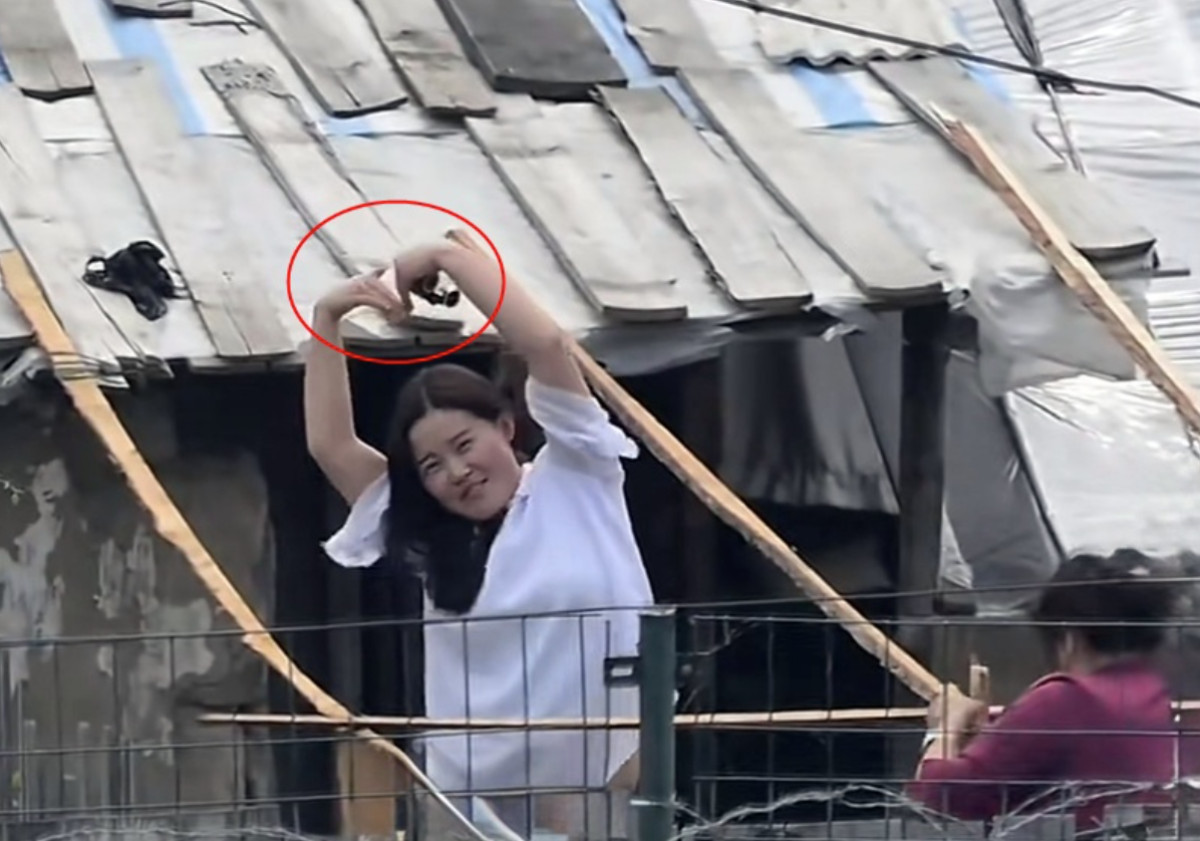As young people embrace the finger heart, the regime is yet to respond

Korea’s finger heart, arm heart, and cheek heart gestures have recently gained wide global popularity. Now, reports suggest that even in North Korea, they have become popular and are taking root as part of everyday culture.
Of course, like everything, nothing can last without state approval. One must avoid the gaze of the State Security Department, Ministry of Public Security, the Youth League, and other surveillance and enforcement organs.
North Korea has long referred to South Korea’s “culture of suffering” and has imposed all manner of restrictions to prevent its citizens, and especially its young people, from being infected. They even ban expressions such as “oppa” or “dang-geun” (“of course”) from South Korean films and dramas.
Nevertheless, the heart gesture has been spreading.
According to sources inside the country, there has been a sharp rise in people, particularly in Pyongyang and the border regions with China, making finger, arm, and cheek heart signs.
While they cannot do this in public at official events or large gatherings, in private settings the gestures are being used freely. Reports indicate they are especially popular among teens and those in their twenties. Some say that even young State Security agents and Ministry of Public Security officers, who stand at the frontline of defending the regime, cannot help but smile when faced with a heart.
One State Security officer in his late twenties, stationed in Hyesan, Ryanggang Province, said that he often receives finger hearts from his girlfriend when they go on dates. When she first made the gesture, he reportedly scolded her, saying, “What is that? Stop watching South Korean movies so much. Don’t do that.”
But years later, the same officer now beams with happiness whenever his girlfriend flashes a finger or cheek heart. And at times he even sends her one in return. Even the frontline guards of the North Korean system seem to momentarily lay aside their duties in the face of a heart.
Ryanggang Province and other areas along the China border are where foreign information and culture are most quickly accessed. It is there that the Korean Wave and other outside trends enter and spread most rapidly.
Thus, while State Security officers outwardly shout slogans of loyalty to the Party, the Leader, and the system, behind closed doors they appear to sympathize with, and even share in, K-pop–style gestures like the heart.
How far has the heart spread?
According to sources, since last year in Pyongyang and other major cities, the very first gesture exchanged at birthdays, anniversaries, and small gatherings among students and young adults is the finger heart or cheek heart.
Those who do not reciprocate are now seen by peers as out of touch with current trends.
The popularity of the heart has risen especially among teenagers and university students in major cities. This phenomenon is said to have begun in the latter half of 2022 in the border cities of Sinuiju and Hyesan.
Sources say it has quietly taken root and represents a clandestine but significant cultural shift. Analysts note that this change can be read as an important indicator of the cultural currents among North Korea’s younger generations and their links to the outside world.
How is the regime responding? Right now it is unclear whether the authorities are fully aware of the growing popularity of the heart. There appear to be no special countermeasures in place.
If Pyongyang were to recognize the trend, it could well invoke harsh measures under the Law on Rejecting Reactionary Thought and Culture or the Pyongyang Cultural Language Protection Law that forbid cultural practices that risk undermining ideological loyalty.
In fact, between 2020 and 2023, during the COVID-19 period, there were cases of teenagers caught watching South Korean dramas or imitating South Korean speech patterns. They were subjected to public trials and punishment. Such scenes are unimaginable in a normal country.
But in North Korea, all means are deployed to prevent ideological drift among the young and protect the system. In such an environment, where even mimicry of foreign films or speech is met with severe punishment, the question arises, if the authorities truly become aware of residents adopting South Korean culture in gestures and body language, how long will it be before there is a severe crackdown?
- As North Koreans face economic hardship, Kim opts for further repression - November 22, 2025
- Farmers struggle to collect payment for livestock - November 20, 2025
- Kim Ju-ae: successor or beloved daughter? - October 28, 2025

